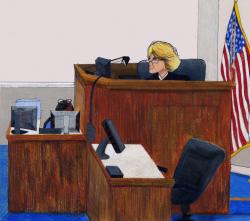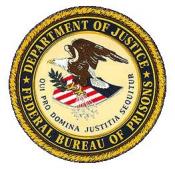 Federal crimes are those brought about by federal law. The federal laws are made by Congress and enforced by various agencies.
Federal crimes are those brought about by federal law. The federal laws are made by Congress and enforced by various agencies.
Although federal laws can be widely enforced, the federal government usually limits itself to enforcing crimes that cut across state lines, that occur on federal lands or Indian reservations, drug and drug trafficking crimes, crimes involving human trafficking, crimes involving banking or finance including bank robberies; and computer or cyber crimes. Of course, in recent years it has also become common for the federal government to investigate crimes considered to be a threat to national security.
Crime, money, power, drugs - are all linked. – Matthew Vaughn
Who Has the Authority to Enforce Federal Laws?
As a general rule any federal law enforcement agent from any agency can make an arrest for a federal crime. Federal law enforcement agents have authority to act when federal laws are broken, federal property is involved, or when federal law gives the agency sole authority over the specific area or field of law involved. There are several agencies that make arrests for federal crimes.
- FBI - Federal Bureau of Investigation
- DEA - Drug Enforcement Agency
- EPA - Environmental Protection Agency
- DHS - Department of Homeland Security
- ICE - Immigration and Customs Enforcement
These are not the only agencies that make arrests but they are the most common. When these agencies investigate a crime or make an arrest, they prepare the paperwork and submit their findings to the Attorney General for presentation to the Grand Jury.
What Is the Purpose of a Grand Jury?
No person shall be held to answer for a capital, or otherwise infamous crime, unless on a presentment or indictment of a Grand Jury... – The Fifth Amendment of the Constitution
What Is a Bill of Indictment?
The Bill of Indictment, referred to as an “indictment” in the legal system is the formal document that charges an individual with a crime. An indictment includes
- The name of the individual or individuals charged
- The charges the individual faces
- The time the alleged crime or crimes occurred
- How they committed the crime
- Where the alleged crime occurred
Some indictments are only one count. Others have several counts and can consist of hundreds of pages. The length of the indictment depends on the crime or crimes charged and the complexity of the case.
The Federal Process
Although every case is different and the exact detail vary based on the charges, federal law enforcement follows well-defined procedures after an indictment has been returned by the grand jury. After the indictment an arrest warrant is issued unless the person has already been arrested. Following the arrest the process proceeds according to the following proceedures.
Bail
Preliminary Hearings
- Motions to Appoint a Public Defender – If the individual cannot afford to hire their own attorney they will ask the court to appoint one for them.
- Bond Reductions – If the amount of bail as set is too high for the individual to post, the attorney asks the Court to reduce the amount of bail required so that the person can be released from jail pending the outcome of the case.
- Motions for Discovery – In these motions the attorney asks for the evidence that will be used against the client so that the attorney can prepare a proper defense.
Arraignment
At the arraignment the individual is informed of the charges against them. At that time the individual enters a plea of “Guilty” or “Not Guilty.” If the individual pleads Guilty, then the case proceeds to the sentencing phase. If the individual pleads Not Guilty then the case goes to trial.
Pre-Trial Motions
- Motion to Suppress – In a motion to suppress, you ask the court to throw out the evidence used against the individual because it was illegally obtained by law enforcement. The most common grounds for a motion to suppress are allegations that law enforcement violated a person’s Fourth Amendment right against search and seizure or their Fifth Amendment right against self incrimination.
- Motion to Dismiss – In a motion to dismiss you are asking the court to throw out the case. In a motion to dismiss the attorney informs the court that even if all of the evidence is as the government states, there is not enough of a basis to charge you with a crime.
- Motion in Limine – This motion asks the court to create an instruction directing the witnesses not to make reference to certain facts in front of the jury. The most common request for a motion in limine is to ask the prosecutor not to make any reference to an individual's prior record during the trial proceedings.
Plea or Trial
Once all of the motions have been made by both the prosecution and defense attorneys, the defendant may decide whether to enter a plea or proceed to trial.
- Plea – Sometimes after all of the motions have been heard and ruled upon, an individual will decide that they no longer wish to go to trial. If this is the case then the individual enters a plea. If you enter a plea then you admit to the charge and accept the consequences at sentencing.
- Trial – If you do not wish to plea or to admit to the charge, then the case proceeds to trial. The facts of your case are presented to a jury of your peers and they determine if you are innocent of guilty of the crime as charged. If you are found not guilty, you are free to go. If you are found guilty, you proceed to sentencing.
- Right to a Speedy Trial – If you do not waive your a trial, it must begin within 180 days of your arrest. The right to speedy trial is guaranteed by the Sixth Amendment of the Constitution. Oftentimes, however, speedy trial is waived in order to give an attorney more time to prepare a proper defense.
Sentencing





